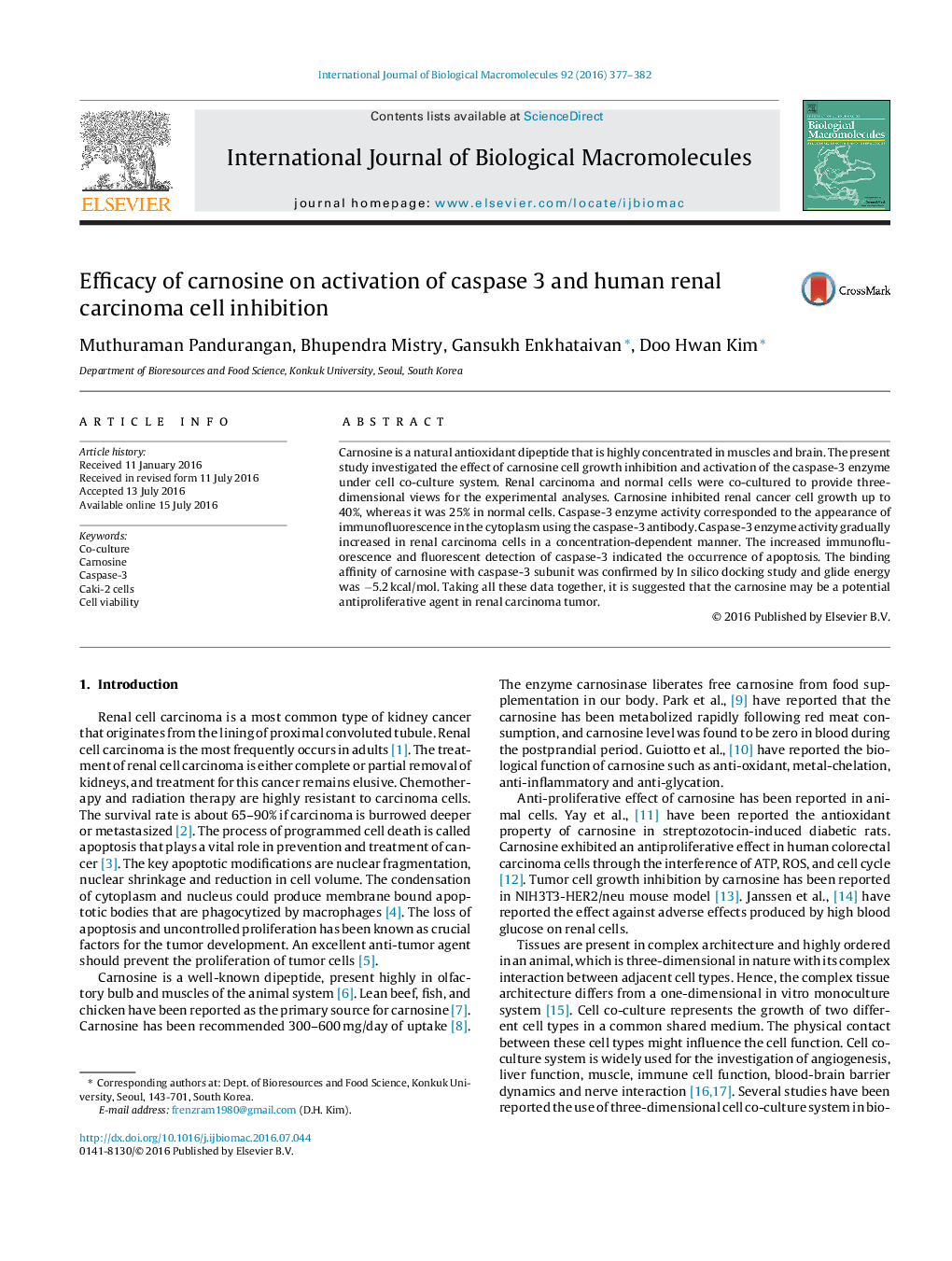| Article ID | Journal | Published Year | Pages | File Type |
|---|---|---|---|---|
| 8329704 | International Journal of Biological Macromolecules | 2016 | 6 Pages |
Abstract
Carnosine is a natural antioxidant dipeptide that is highly concentrated in muscles and brain. The present study investigated the effect of carnosine cell growth inhibition and activation of the caspase-3 enzyme under cell co-culture system. Renal carcinoma and normal cells were co-cultured to provide three-dimensional views for the experimental analyses. Carnosine inhibited renal cancer cell growth up to 40%, whereas it was 25% in normal cells. Caspase-3 enzyme activity corresponded to the appearance of immunofluorescence in the cytoplasm using the caspase-3 antibody. Caspase-3 enzyme activity gradually increased in renal carcinoma cells in a concentration-dependent manner. The increased immunofluorescence and fluorescent detection of caspase-3 indicated the occurrence of apoptosis. The binding affinity of carnosine with caspase-3 subunit was confirmed by In silico docking study and glide energy was â5.2Â kcal/mol. Taking all these data together, it is suggested that the carnosine may be a potential antiproliferative agent in renal carcinoma tumor.
Related Topics
Life Sciences
Biochemistry, Genetics and Molecular Biology
Biochemistry
Authors
Muthuraman Pandurangan, Bhupendra Mistry, Gansukh Enkhataivan, Doo Hwan Kim,
